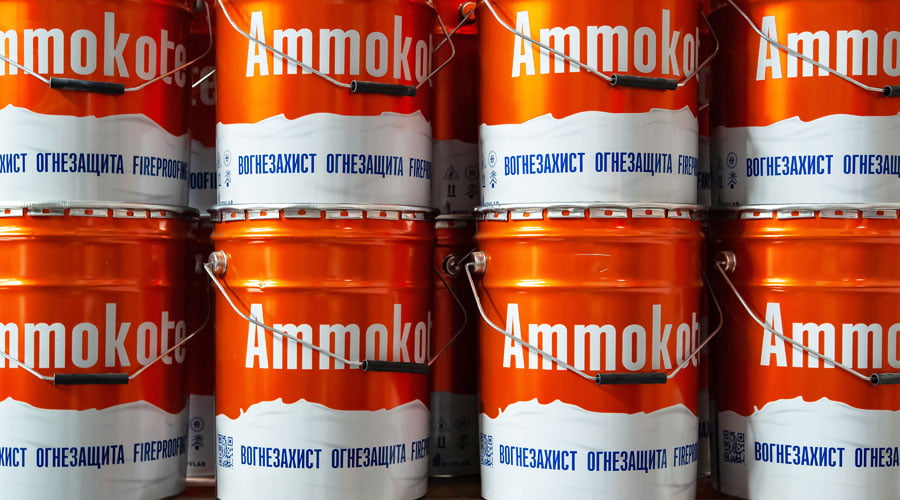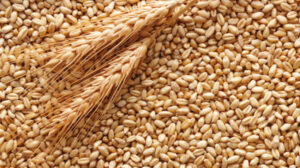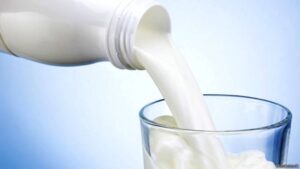
If hostilities end in 2025, Ukraine’s passive fire protection market could grow approximately 2.5 times from 2026 to around $25 million, according to Kovlar Group, a manufacturer of passive fire protection products.
According to the company’s experts, based on the preliminary results of the Ukraine Recovery Conference 2025 (Rome) and taking into account the priority tasks for reconstruction, a change in the segmentation of the passive fire protection market by type of material is expected. Intumescent coatings for steel will account for the largest share — 35-40%, fire-resistant plasters and slabs — 20-25%, sealing systems for penetrations and protection of engineering communications — 25-30%, materials for wood protection — up to 10%, and ventilation and smoke ducts — 5-10%. There is also a forecast for growth in demand for epoxy and polyurethane fire protection systems for oil and gas infrastructure, energy, and strategic facilities, which was previously limited by the high cost of imported analogues.
Konstantin Kalafat, director of Kovlar Group, emphasized that domestic manufacturers have sufficient capacity to ensure large-scale reconstruction of the country’s infrastructure in the post-war period. In particular, Kovlar Group LLC prioritizes the restoration of the energy sector, where the speed of work, availability of materials, and increased fire safety requirements are crucial.
“The use of Ammokote products ensures the efficiency of fire protection work — our own production reduces logistics times and allows us to quickly deliver large volumes. Local production reduces the cost compared to imported analogues, which is especially important for large-scale restoration projects,” said Konstantin Kalafat, director of the company.

An important factor for reconstruction is the implementation in Ukraine of the law “On the Provision of Construction Products on the Market,” which implements the provisions of Regulation (EC) No. 305/2011 and is expected to increase the competitiveness of the Ukrainian fire protection segment in comparison with European products. According to Konstantin Kalafat, Ukrainian manufacturers of fire protection products should actively implement manufacturing and product control technologies in accordance with advanced European standards.
A critically important area of the company’s activity is fire protection of cable lines at energy facilities, where fire safety is a prerequisite for the reliable and uninterrupted operation of power generation, substations, and networks. Kovlar Group offers comprehensive solutions for cable protection: fire-retardant paints, plasters, three types of systems for penetrations, as well as special couplings, seals, and sealants. In the first half of 2025, the company developed Ammokote TOP-W, a universal finishing material for cable communication fire protection systems; certification of Ammokote EP epoxy fire-retardant paint is ongoing.
“The company adheres to transparent competitive procedures and is ready to work within the framework of open tenders, cooperate with government agencies, contractors, and project teams for prompt, safe, and economically sound reconstruction,” emphasized Konstantin Kalafat.
Kovlar Group LLC was founded in 2015 in Kyiv and is the largest manufacturer of passive fire protection products in Ukraine. According to OpenDataBot, the company’s authorized capital is UAH 1.2 million, and its ultimate beneficiaries are Kostyantyn Kalafat (40%), Andriy Ozeychuk (35%), and Lyubov Vakhitova (25%). The company’s revenue for 2024 was UAH 91.3705 million, which is twice as much as in 2023, and its net profit was UAH 13.4 million, which is 1.7 times more than in 2023. In the first quarter of 2025, the company’s revenue was UAH 13.5 million, with a net income of UAH 1,983,000.
Source: https://interfax.com.ua/news/economic/1101227.html

As part of a public-private partnership program, trading company Almeida Group LLC has signed a long-term lease agreement for the Bogdanivets Grain Processing Plant (Khmelnytskyi region) and increased its storage capacity by 92,000 tons, according to company director Maksym Volchenko.
“Thanks to the implementation of this project, Almeida Group has already exceeded its simultaneous storage capacity figures that were in place before the full-scale invasion,” he wrote on Facebook.
According to Volchenko, the Bohdanivets Bread Products Plant property complex includes an elevator with a total storage capacity of 92,000 tons, four independent grain receiving points from motor vehicles with a capacity of 3,000 tons per day, two grain drying complexes, a laboratory certified for all crops, railway infrastructure, and a mill with a capacity of 120 tons per day.
During August 2025, Almeida Group LLC carried out pre-season repairs and calibration of all equipment at the elevator complex, assembled a highly qualified team of company specialists, resolved a number of issues related to railway infrastructure, repaired a diesel locomotive, and restored access to the railway.
“As a result of this partnership, the Almeida Group has further increased its presence in the region in the elevator, trading, and logistics sectors, as well as gained another foothold for creating supply chains from producers to European and other export markets,” said the head of the enterprise.
Volchenko added that local producers now have the opportunity to order storage, laboratory control, and logistics services for the export of agricultural products with a full delivery cycle to ports or to European Union countries by land and water at rates that are attractive to agricultural producers.
Almeida Group LLC was registered in 2008. It specializes in the purchase and wholesale of grain crops and international transport and logistics services. It has six regional offices with its head office in Kyiv: in Kharkiv, Chernihiv, Chernivtsi, Uzhhorod, and Lviv.
Before the war, the company used a transshipment hub-elevator in Severodonetsk (Luhansk region). It has now been destroyed. In 2022, Almeida Group built a transshipment complex on the border with the EU at the Vadul-Siret station and resumed trading in grain crops.
In 2023, it built similar transshipment complexes at the Chop station (Zakarpattia region) and the Mostyska station (Lviv region). In 2025, the company took over the management of the Rozdorsky elevator from the G.R.Agro group.
In 2024, the USAID Economic Support to Ukraine Project purchased and transferred 25 new grain cars to Almeida Group LLC to increase agricultural exports.
The beneficiaries of Almeida Group are Mikhail Kudukhashvili and the owner of Levada Agricultural Production Cooperative, Maxim Volchenko.
Almeida Group, Bogdanivets Agricultural Production Cooperative, GRAIN

The volume of raw milk supplied for industrial processing in January-June 2025 exceeded 1.8 million tons, which is 10.6% more than in the same period of 2024 and 19.3% more than in the same period of 2023, according to the Ukrainian Dairy Industry Association (UDIA).
The industry association emphasized that the growth rate of raw milk purchases from enterprises in the first half of 2025 decreased to 6% compared to 12.6% in the first half of 2024.
“Raw milk supplies from private farms amounted to less than 94,000 tons,” the UDAU stated.

AgriAcademy, an educational platform for agribusiness professionals, is now accepting registrations for a new course that will help agricultural producers gain up-to-date knowledge about legislative requirements, safe pesticide use, and innovative plant protection technologies, writes SEEDS.
The field of plant protection products is undergoing significant changes, including stricter legislation, safety requirements, new application technologies, and a shift to biological methods. In this environment, Ukrainian agricultural producers must be prepared to adapt to new rules and market expectations.
That is why AgriAcademy is offering a free new certified online course: “Regulation, Safety, and Innovation in the Use of Plant Protection Products” from national and international practitioners and experts.
What will course participants gain?
The approximate duration of the course is 5 hours. After completing the course, you will receive a certificate.
The course program features national and international experts:
Who is this course for?
For farmers, agronomists, consultants, equipment operators – anyone who works with pesticides and wants to reduce risks and increase efficiency.
This is a unique opportunity for Ukrainian farmers to gain knowledge that meets the requirements of the modern market and future regulatory standards. Participation in the course will help you avoid fines, increase the efficiency of your farm, and ensure safe working conditions.
Registration is open on the AgriAcademy website
AgriAcademy is a free online learning platform for agricultural workers and students of agricultural education institutions, launched by the EBRD in December 2022 as part of its food security support program in Ukraine. Its goal is to strengthen the competitiveness and sustainable development of agriculture, which has suffered significant losses due to the war.
Today, the platform offers 28 online courses – over 300 hours of practical training in agronomy, management, technology, processing, storage, and more. Each course includes knowledge testing and certification of participants.
The creation and management of the platform (including course development, training tours, etc.) is supported and funded by the EBRD, as well as:
All certified free courses are available here

Ukraine received a new batch of humanitarian aid from Azerbaijan to restore energy infrastructure damaged during the armed conflict, according to Ukrainian and Azerbaijani press services.
The aid consists of the supply of electrical equipment worth $2 million, approved by a decree of the President of the Republic of Azerbaijan, Ilham Aliyev, dated August 11, 2025, with funds from the presidential reserve fund and the 2025 state budget. The equipment includes generators, transformers, and electrical cables manufactured in Azerbaijan.
The first batch of aid — about 10 trucks sent from the Sumgait Technology Park — contains about 90,000 meters of electrical cables, 25 generators, and seven sets of transformers. They are intended to restore stable power supply in regions of Ukraine destroyed by Russian strikes.
Ukrainian President Volodymyr Zelensky and Azerbaijani President Ilham Aliyev discussed energy cooperation and interaction with the US and European partners during a telephone conversation on August 10. The parties emphasized that the assistance is based on the principles of humanism and partnership enshrined in bilateral agreements, including the 2000 Treaty on Friendship, Cooperation, and Partnership and the 2008 Declaration on Strategic Partnership.
Diplomatic relations between Ukraine and the Republic of Azerbaijan were established on February 6, 1992, when Azerbaijan officially recognized Ukraine’s independence. The Ukrainian Embassy in Baku began operating in 1996, and the Azerbaijani Embassy in Kyiv in 1997.